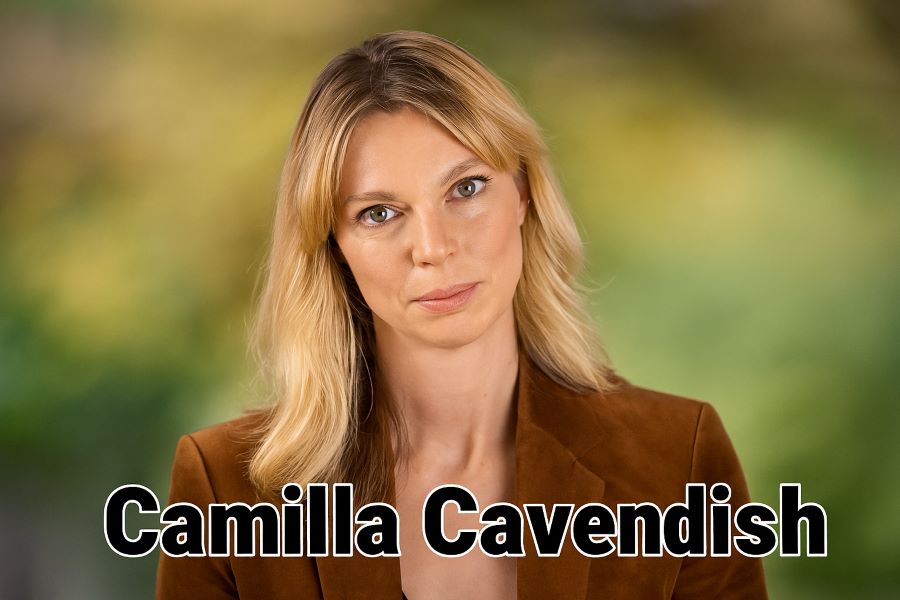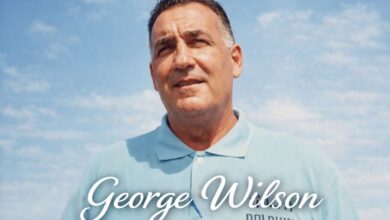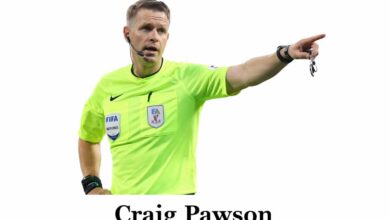Camilla Cavendish: The Fearless Voice of Reform and Policy Innovation
The Inspiring Journey of Baroness Cavendish of Little Venice – From Journalism to the House of Lords of the United Kingdom

Table of Contents
ToggleIntroduction
Camilla Cavendish is a distinguished British journalist, policy expert, and Member of the House of Lords of the United Kingdom, widely known as Baroness Cavendish of Little Venice. Her name has become synonymous with fearless journalism, bold reform, and thought leadership in public policy. Through her remarkable journey—from shaping public debate in newspapers to influencing health and social care policy in government—Camilla Cavendish has left an indelible mark on British society.
Her career reflects courage, intellect, and dedication to the public good. Known for challenging conventions and advocating systemic reform, she continues to stand out as one of the most influential women in British politics and media.
Quick Bio
| Field | Details |
|---|---|
| Full Name | Hilary Camilla Cavendish |
| Title | Baroness Cavendish of Little Venice |
| Date of Birth | 20 August 1968 |
| Age | 57 years (as of 2025) |
| Nationality | British |
| Occupation | Journalist, Policy Expert, Life Peer |
| Education | PPE, Brasenose College, Oxford; MPA, Harvard Kennedy School |
| Spouse | Huw van Steenis |
| Children | Three |
| Father | Richard Cavendish (historian) |
| Current Role | Non-Executive Director, Department of Health and Social Care (UK) |
Camilla Cavendish’s Early Life and Education
Camilla Cavendish was born on 20 August 1968 in the United Kingdom. From a young age, she displayed sharp intellect and curiosity about politics and society. She attended Putney High School in London, where she developed a passion for analysis, debate, and writing—skills that would later shape her distinguished career.
She pursued Philosophy, Politics, and Economics (PPE) at Brasenose College, Oxford, graduating with a first-class degree in 1989. Determined to explore global perspectives on governance and policy, she later studied at the Harvard Kennedy School as a Kennedy Scholar, earning a Master of Public Administration (MPA). These academic achievements laid the foundation for her powerful influence in both journalism and government.
Family and Personal Life
In her personal life, Baroness Cavendish of Little Venice is married to Huw van Steenis, a respected economist and financial strategist. Together, they have three children. Her father, Richard Cavendish, was a renowned historian and author, best known for his writings on history and heritage.
Camilla Cavendish’s family background and intellectual upbringing shaped her worldview and passion for fairness, truth, and societal reform. She has balanced her public responsibilities with family life, earning admiration for her poise and integrity in both roles.
The Beginning of a Brilliant Career
Camilla Cavendish began her professional journey as a management consultant at McKinsey & Company, where she developed a deep understanding of organizational systems and strategic reform. She later worked as an aide to the CEO of Pearson PLC, gaining insights into corporate governance and leadership.
Her transition into journalism was a defining move. At The Times, she served as associate editor and later became chief leader-writer in 2010. Through her compelling editorials and bold commentaries, she became one of the most respected voices in British journalism. Her investigative reporting on family courts and social injustice won her the Paul Foot Award for Campaigning Journalism in 2008.
From Journalism to Government Service
Camilla Cavendish’s shift from journalism to policy-making was both natural and impactful. In 2013, she was appointed to the board of the Care Quality Commission (CQC), the UK’s health and social care regulator. That same year, she led the Cavendish Review, an independent government review focused on improving training and standards for healthcare assistants in the NHS and social care sectors.
Her reputation as a reform-minded thinker led to her appointment as Director of the Policy Unit at 10 Downing Street in May 2015, serving under Prime Minister David Cameron. During this time, she played a key role in shaping public health policies, including the introduction of the UK Sugar Tax, a major initiative aimed at reducing childhood obesity and improving nutrition.
Life Peerage and Political Independence
In September 2016, Camilla Cavendish was elevated to the House of Lords, becoming Baroness Cavendish of Little Venice. Her appointment reflected recognition of her exceptional contributions to public life.
Later, she chose to sit as a non-affiliated peer, emphasizing her commitment to independent thinking and policy integrity over party politics. As a Member of the House of Lords of the United Kingdom, she has continued to advocate for issues such as healthcare reform, social equality, and responsible governance.
Major Achievements and Contributions
Camilla Cavendish’s influence extends beyond journalism and politics. Her 2019 book, “Extra Time: Ten Lessons for an Ageing World,” explores the social and economic implications of an ageing population, offering thoughtful strategies for creating societies that value longevity and intergenerational balance.
Her research and writings have positioned her as an authoritative voice on demographic change, public health, and social reform. She currently serves as a Non-Executive Director at the Department of Health and Social Care (UK) and continues to contribute insightful columns to the Financial Times.
Awards and Recognition
Throughout her illustrious career, Camilla Cavendish has received numerous accolades. She was named among the most influential women in the UK by BBC Radio 4’s Woman’s Hour Power List and was also recognized by the Health Service Journal for her impact on national health policy. Her awards underscore her enduring influence across journalism, policy, and public service.
Legacy and Influence
Camilla Cavendish’s legacy is defined by her unwavering belief in reform, fairness, and transparency. She has been both praised and challenged for her bold stances—a testament to her courage in confronting complex issues. Her fearless advocacy for better healthcare standards, government accountability, and social fairness has earned her respect across political lines.
Her work bridges the gap between thought and action, showing how journalism and policy can unite to serve the public good. Whether as a writer, reformer, or Baroness Cavendish of Little Venice, she embodies leadership with intellect and empathy.
Conclusion
Camilla Cavendish remains one of Britain’s most dynamic public figures. Her journey from journalism to the House of Lords of the United Kingdom demonstrates how intellect, integrity, and courage can transform society. She has inspired a generation of thinkers and policy-makers to challenge complacency and strive for lasting reform.
Her story is a reminder that true leadership lies not in titles or power, but in the relentless pursuit of truth and justice.
Frequently Asked Questions (FAQ)
Q1. Who is Camilla Cavendish?
Camilla Cavendish is a British journalist, policy advisor, and Member of the House of Lords, known as Baroness Cavendish of Little Venice. She is recognized for her influential work in health and social care reform.
Q2. What is Camilla Cavendish known for?
She is known for her leadership in policy innovation, her award-winning journalism at The Times, and her government work on the UK’s sugar tax and healthcare workforce reform.
Q3. What are her educational qualifications?
Camilla Cavendish holds a degree in Philosophy, Politics, and Economics from Oxford University and a Master of Public Administration from Harvard Kennedy School.
Q4. What is her major publication?
Her book “Extra Time: Ten Lessons for an Ageing World” explores the challenges and opportunities of an ageing population.
Q5. What is her current role?
As of 2025, she serves as a Non-Executive Director at the Department of Health and Social Care (UK) and contributes as a columnist at the Financial Times.



